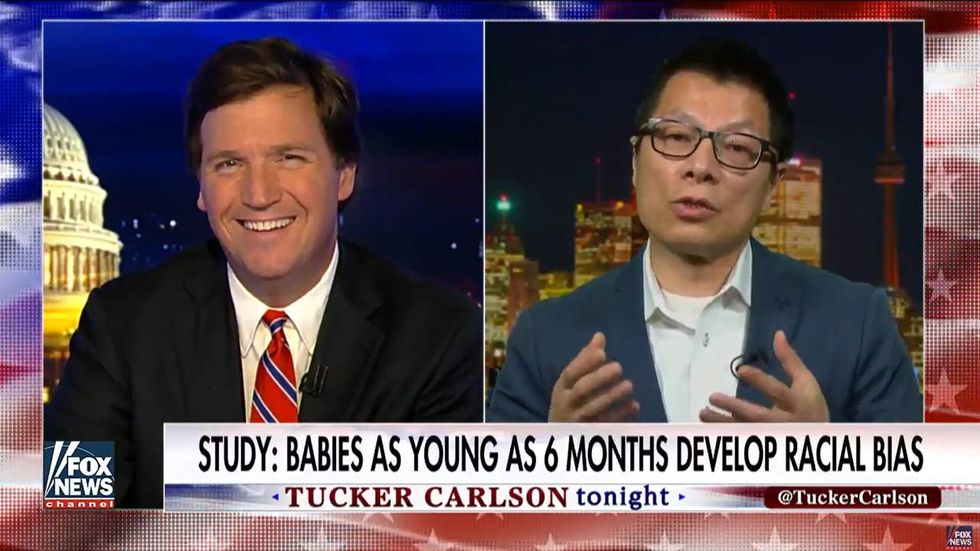
Researchers in Canada say babies typically show bias toward their own race. Dr. Kang Lee appeared on Fox News Channel's "Tucker Carlson Tonight" on April 14, 2017, to discuss his findings. (Image source: YouTube)

Researchers at the Ontario Institute for Studies in Education and the University of Toronto recently released two studies claiming to show six- to nine-month-old babies are biased in favor of people of their own race.
“The results show that race-based bias already exists around the second half of a child's first year,” said Dr. Kang Lee, a professor at OISE’s Jackman Institute of Child Study, according to a report in the Daily Mail.
The researchers found in their first study babies associate positive-sounding music to people of their own race and negative-sounding music with people of another race. In the second study, the researchers say babies were more likely to follow the gaze of people of their own race than people of another race, suggesting babies are more willing to learn from people who look like them.
“These findings thus point to the possibility that aspects of racial bias later in life may arise from our lack of exposure to other-race individuals in infancy,” Lee said to the Daily Mail.
On Friday night, Lee joined Fox News Channel host Tucker Carlson on “Tucker Carlson Tonight” to discuss the findings, and Carlson was highly skeptical of the racist-baby theory.
“Now, I’m not a social scientist or a researcher, but it seems unlikely that you could measure the racial attitudes of a three-month-old, beyond like my diaper is dirty kind of thing, or I want some milk,” Carlson said to Lee.
“The way to do it,” Lee said, “is to see what kind of things we associate with or whether or not we tend to learn—the babies like to learn from own-race individuals [rather than] other-race individuals.”
Lee then explained in one of the studies the researchers conducted, they found babies prefer to learn from people with the same or similar racial background. Lee also said he believes this could be the basis for racist attitudes developed later in life.
“From a non-expert point of view, this suggests that these attitudes are not learned behavior but a product of evolutionary biology, but I guess you would know,” Carlson said to Lee. “As someone who would cover politics, though, I’m pretty certain that your study is going to lead to new government programs and government control over babies.”
Lee replied, “I hope not. … Well, I think it depends on parents, right, and educators, whether or not you want your kids to develop these biases. For example, you know, you could, actually, introduce your kids, babies, to read storybooks that are depicting people from all over the world. And I think that could help your child … to see more individuals from different races, ethnicities, as well as expose them to different cultures. I think it would make your babies more worldly.”
Lee also said he’s “not sure” government programs should be used, to which Carlson responded, “I mean, call me cynical, but I have the feeling that this is going to justify a whole new range of intrusions into people’s family lives, where all of a sudden government regulators and do-gooders and people with guns are going to rearrange the family in the interest of promoting tolerance or whatever the justification is.”
Justin Haskins